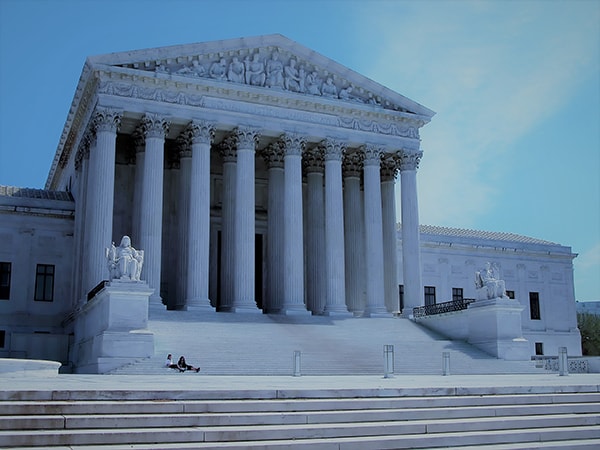Demystifying the Refine of Federal Appeals: What You Need to Know
Browsing the complex world of government charms can usually seem like passing through undiscovered waters for those not familiar with the procedure. Comprehending the subtleties of appellate court territory, the ins and outs of filing a notification of appeal, providing an engaging quick, and making a persuasive oral disagreement are crucial parts that can considerably influence the outcome of a case. By unwinding the layers of intricacy bordering federal allures, people can obtain a more clear understanding into the systems that govern this vital phase of the lawful system.
Understanding Federal Appeals Process
Looking into the detailed world of the federal charms process reveals a structured and systematic trip via the judicial system - best federal appeals attorneys pennsylvania. Federal appeals act as a critical system for evaluating choices made by lower courts. Comprehending this procedure is essential for any person included in lawful procedures at the government level
The process commonly starts with an event dissatisfied with a reduced court's judgment submitting a notification of appeal. This sets off a review by a higher court, where a panel of judges analyzes the lawful disagreements offered by both parties. Briefs describing the legal reasoning behind each celebration's placement are submitted, and oral disagreements might be heard to make clear complicated problems.
The appellate court's choice is based on a detailed exam of the reduced court's procedures and the arguments presented. When the appellate court reaches a choice, it can affirm, turn around, remand, or customize the lower court's judgment, supplying clearness and finality to the legal dispute.
Appellate Court Territory Described

Appellate courts have territory over certain sorts of cases, typically those entailing legal errors, step-by-step problems, or questions of law instead than factual disagreements. The territory of appellate courts is typically described in statutes and laws that regulate the court system. Comprehending appellate court jurisdiction is essential for events entailed in the charms process as it establishes whether a situation is qualified for evaluation and the extent to which the appellate court can interfere in the lower court's choice.
Declaring a Notice of Allure
The preliminary action in beginning the government charms procedure involves submitting a Notification of Charm with the suitable appellate court. federal rico appeal lawyers. This essential file formally notifies the court and the other events associated with the instance that the appealing celebration means to seek an evaluation of the reduced court's choice. Submitting a Notice of Charm is a stringent procedural requirement that establishes the appellate procedure in activity
When preparing the Notice of Appeal, it is vital to make certain compliance with the certain regulations and standards of the appropriate appellate court. The file must generally consist of details such as the situation name, the reduced court's name, the date of the judgment being appealed, and a succinct declaration indicating the grounds for the allure.
When submitting a Notification of Allure,Timeliness is of the essence. Missing the target date for sending this record can lead to the allure being rejected, underscoring the relevance of timely and accurate initiation of the allures process. It is advisable to look for legal assistance to navigate the complexities of submitting a Notice of Allure efficiently.
Instruction and Oral Debate
In the appellate process, offering written briefs and taking part in oral disagreements play crucial duties in promoting for the appealing celebration's position before the appellate court. Briefs are comprehensive legal documents that outline the parties' debates, legal authorities, and evaluation sustaining their positions. These written entries offer the court with an in-depth understanding of the realities of the instance, the pertinent regulation, and why the appealing event believes the reduced court's choice should be reversed.
Adhering to the entry and review of the briefs, dental click this link disagreements offer the events a possibility to more clarify their placements, attend to any concerns the appellate judges might have, and emphasize vital points from their created briefs. Oral disagreements are a possibility for the lawyers to convince the judges through verbal campaigning for and responses to inquiries from the bench.

Getting the Appellate Court Decision

Verdict
Finally, the government allures process is a complicated yet crucial step in looking for justice. Recognizing the appellate court jurisdiction, filing a notice of appeal, preparing briefs, and offering oral arguments are all essential elements of this process. Eventually, obtaining the appellate court choice can supply clearness and resolution to lawful disagreements. It is essential to navigate the government allures procedure with persistance and attention to detail to achieve a fair result.
As we progress from comprehending the federal allures process to dissecting the ins and outs of appellate court territory, an essential element comes to light relating to the authority and limitations of these higher courts in the legal landscape. Appellate court territory refers to the scope of cases that a particular appellate court has the power to make a decision and review upon. Unlike test courts that hear instances for the initial time, appellate courts are restricted to evaluating decisions made by lower courts. Recognizing appellate court territory is vital for celebrations involved in the appeals procedure as it determines whether a case is eligible for testimonial and the level to which the appellate court can interfere in the lower court's choice.
Whether the appellate court verifies, reverses, or remands the reduced court's choice, understanding the implications of the judgment is important for all parties entailed in the appellate process.